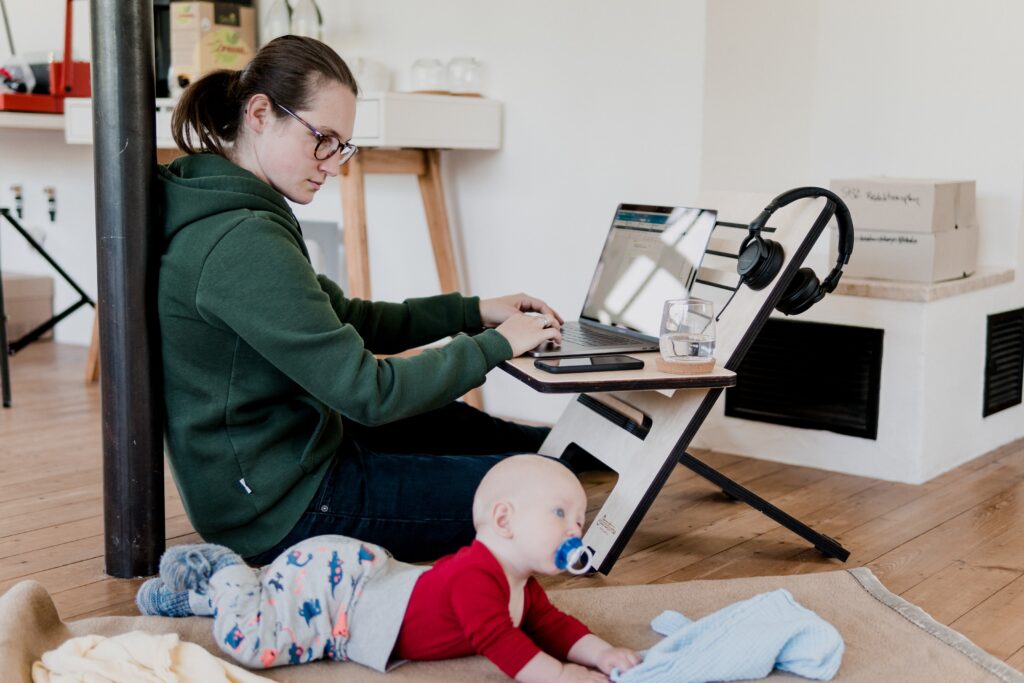A BBC survey in August 2020 suggests that 50 of the biggest UK employers have no plans to return all staff to the office full-time, in the near future. Nine out of ten workers who have worked from home during the lockdown would like to continue in some form, researchers found.
Even as the Covid-19 vaccine rollout clears the way for people to return to the office, it is amply clear that many workers and companies will prefer to continue working remotely. For employees, the choice is clear. More than half said that, given the option, they would want to keep working from home even after the pandemic, according to a separate survey by the Pew Research Center.
Going forward, the question facing employers and employees is not how long remote work will last but how best to stay engaged in this ‘new normal’.
The digital way of working poses its own challenges. While remote work isn’t new, a majority of employees had never experienced it on such a scale. Employees are missing face-to-face interactions, something that they have been used to. Isolation, depression and work-life imbalance are some of the fallouts. Zoom, which became the source for face-to-face interaction has created its own fatigue and employees are getting burnt out from having to constantly be online and attentive. As high as 69% of employees are experiencing burnout while working from home.
Constantly learning and adapting, HR departments of companies are hastily trying to create a virtual workplace culture, devising ways to keep the workforce engaged, committed and resilient. If you too are looking for ways to keep your remote workforce engaged during these unprecedented times, here are a few pointers you must look at.
1. Focus on mental health and wellbeing
To keep employees motivated in unpredictable circumstances, HR leaders must focus on their mental health and wellbeing. There are plenty of online resources available for anyone requiring assistance in these areas. These can be harnessed and customised. Secondly, HR leaders must actively contribute to and nurture their workplace culture.
Investing in remote work culture is essential because company culture is strongly linked to mental health and wellbeing. Employees are more likely to thrive in a happier culture driven by purposeful decisions from leadership.
2. Offer flexibility
Remote working presents different challenges to different people. Some live alone, while others juggle full time work with caregiving. Some work better in the day; others are more productive at night.
Organisations need to provide the right tools and systems to help individuals adopt their own unique way of working from home. Providing the right level of personalised support to everyone, which could mean providing mental health first aid, crisis support or an employee assistance programme (EAP), goes a long way in putting employees at ease.
3. Build a virtual culture
Friday Netflix watch parties. TikTok challenges. Trivia games. Vision board workshops. Standup comics. There are a variety of ways for companies to engage their employees and keep them excited about showing up. The key to building a virtual culture is to co-create one with active employee involvement and including aspects that everyone is enthusiastic about. In a remote working environment, there’s no joking by the water cooler or connections happening by the coffee machine. In-person culture-building activities have to be replaced with virtual ones so that employees can still feel a sense of connection with each other.
Mindful rules such as creating and respecting boundaries for time to switch off, such as no emails after 6pm or having an undisturbed lunch break can prevent employees from overworking and risking burnout. Again, when the boundaries between office and home disappear, the end of the work-week does not feel like it. If employees feel unable to ‘switch off’ over time, it can affect engagement and motivation levels.
4. Communicate authentically
Remote workers can quickly start to feel anxious, alienated and even fearful about their jobs if they don’t know what’s happening next, especially those who are not used to remote working. Reassuring them and gaining their confidence – with clear, comprehensive and regular communication that keeps everyone in the loop – is imperative.
While the remote environment does not lend itself to an impromptu chat with an employee, it is important to remember that employees working from home still need the same support. HR Managers need to be available in the same way as they would be in the workplace.
5. Encourage innovation and employee projects
The late Steve Jobs was against the idea of working from home. He was famously quoted in his biography by Walter Isaacson, “Creativity comes from spontaneous meetings, from random discussions. You run into someone, you ask what they’re doing, you say ‘Wow’ and soon you’re cooking up all sorts of ideas.”
The validity of this statement cannot be questioned. It’s true that working in teams and face to face conversations can steer innovative ideas and energise minds to think out of the box. With remote work being the norm now, technology can be the saviour when it comes to keeping the passion for innovation high.
Coming up with fresh new ideas consistently is the golden ticket to any organisation’s success. Leaders and managers must instil an ideas-led environment even in the remote work arrangement. Allow employees to brainstorm on different issues and block certain hours in a week just to discuss and hear out each other’s ideas. Hiring people who can bring in fresh perspectives would be the key. But most importantly, giving your people the space to breathe, reflect and grow will fuel their desire to contribute to innovative ideas to help the business prosper.
6. Create a culture of connectedness
Employees crave connection and want to feel included. They want to share what’s happening in their lives and build relationships with their colleagues. Creating a culture of connectedness means recognising that employees are people with unique backgrounds, interests and ideas.
More than ever, we need to communicate and network, albeit remotely. It’s important to enable and encourage the workforce to talk and build stronger communities in the workplace and beyond. Remote employees can hold back on how they’re really feeling so it is important to give them room to express themselves. With a remote team, an employee engagement survey is a great way to acquire feedback.
7. Show appreciation
It goes without saying that employees want to be recognised and appreciated for their efforts. Working remotely isn’t something most employees signed up for but they’re doing the best they can to make it work. For instance, working parents are having to struggle with children’s online school while managing their own professional responsibilities, and it isn’t not easy.
Showing appreciation with a simple thank you or a genuine compliment goes a long way. When employees feel cared about they’re more inclined to be involved and passionate about work.
8. Encourage altruism
In times of uncertainty, encouraging and supporting corporate social responsibility (CSR) activities is an excellent way to create ‘feel good’ vibes across the workforce as well as in the wider community.
Altruistic initiatives are not just a way to improve morale. In times of crises, they help those involved to forget about their own fears and uncertainties.
The pandemic will end one day. Until then, organisations will need to adjust their remote working policies to give employees the support they need. HR will need to extend and find ways to take care of the mental and emotional well being of employees, not just when they are at work but also when they are fighting other battles beyond work.





























